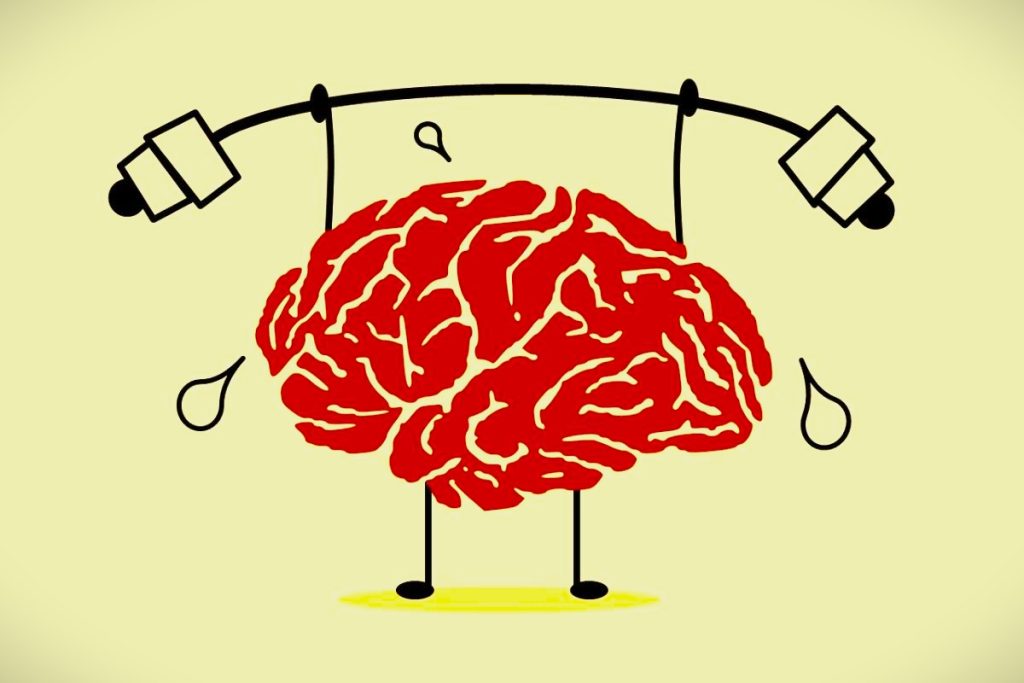Resilience: What It Is and How to Cultivate It
Life is full of challenges and hardships that can test our ability to cope and recover. Whether it’s a personal crisis such as losing a loved one or a divorce, or a global crisis such as a pandemic or a war, we all face situations that can shake our sense of stability and well-being.
How do we deal with these difficulties? How do we bounce back from adversity? How do we maintain our mental health and happiness in the face of stress?
The answer lies in #resilience.
What Is Resilience?

Resilience is the ability to adapt to difficult situations and overcome obstacles. It is not a trait that you either have or don’t have, but rather a skill that you can learn and improve with practice and support.
Resilience does not mean that you don’t feel any negative emotions or experience any pain when something bad happens. Resilience means that you can manage your emotions and cope with your problems effectively, without letting them overwhelm you or interfere with your functioning.
Resilience also does not mean that you ignore or avoid your problems or pretend that everything is fine. Resilience means that you acknowledge your reality and face your challenges head-on, while also finding ways to cope and move forward.
Resilience is not something that happens automatically or magically. Resilience requires effort, perseverance, and sometimes help from others. Resilience is something that you can build over time by developing certain attitudes, behaviors, and skills.
Why Is Resilience Important?
Resilience is important for many reasons. Here are some of them:
- Resilience helps you cope with stress and adversity. Stress is inevitable in life, but too much stress can harm your physical and mental health. Resilience helps you reduce the negative effects of stress by helping you manage your emotions, thoughts, and actions in healthy ways.
- Resilience helps you recover from trauma and loss. Trauma and loss are among the most difficult experiences that anyone can go through. They can cause intense grief, anger, fear, guilt, shame, depression, anxiety, and other emotional reactions. Resilience helps you heal from these wounds by helping you process your emotions, find meaning in your suffering, and rebuild your life.
- Resilience helps you grow from challenges and opportunities.
Challenges and opportunities are not only sources of stress, but also sources of learning and growth. Resilience helps you embrace these opportunities by helping you see them as chances to improve yourself, learn new skills, discover new strengths, and achieve new goals.
How Can You Cultivate Resilience?
There are many ways to cultivate resilience, but some of the common ones are:
- Know your strengths and use them: You have many strengths that can help you cope with difficulties such as intelligence, creativity, humor, compassion, courage, etc. Identify these strengths and use them whenever possible to solve problems, overcome obstacles or help others.
- Build your self-esteem and confidence: Self-esteem is how much you value yourself and confidence is how much you trust yourself. Both are important for resilience because they affect how you perceive yourself and your abilities. To build your self-esteem and confidence you can practice positive self-talk,
celebrate your achievements, accept compliments, learn from mistakes, challenge negative beliefs and seek feedback. - Build healthy relationships with supportive people: You don’t have to face difficulties alone. You can rely on supportive people such as family, friends, colleagues, mentors, therapists or coaches to help you cope, advise, comfort, encourage, inspire, or challenge you.
- Seek help when needed: Sometimes, coping with difficulties may be too hard for you cope, advise, comfort, encourage, inspire, or challenge you. Seeking help is not a sign of weakness but a sign of strength. It shows that you are aware of your needs and willing to take action. You can seek help from various sources such as your doctor, counselor, support group, helpline, or online service.
- Manage stress and anxiety levels: Stress and anxiety are normal reactions to difficult situations but too much of them can impair your resilience. To manage your stress and anxiety levels you can practice relaxation techniques such as breathing exercises, meditation or massage. You can also engage in physical activities such as walking, running, swimming, or dancing that can release endorphins and improve your mood. You can also maintain a healthy lifestyle by eating well, sleeping enough, avoiding alcohol and drugs, and limiting caffeine and nicotine.
- Work on problem solving skills and coping strategies: Problem solving skills are essential for resilience because they help you identify and address the root causes of your difficulties. To improve your problem-solving skills
you can follow these steps:
- Define the problem clearly and specifically.
- Brainstorm possible solutions and evaluate their pros and cons.
- Choose the best solution and plan how to implement it.
- Execute the solution and monitor its progress and outcomes.
- Review the results and make adjustments if needed.
Coping strategies are the actions that you take to deal with your problems or emotions. There are two types of coping strategies: problem-focused and emotion-focused.
Problem-focused coping strategies aim to change or eliminate the source of stress or difficulty, such as seeking information, taking action, setting goals, making plans, etc.
Emotion-focused coping strategies aim to reduce or manage the negative emotions associated with stress or difficulty, such as expressing feelings, seeking support, distracting oneself, reframing thoughts, etc.
Both types of coping strategies are useful for resilience,
but they should be used appropriately depending on the situation.
For example, if you have some control over the problem, you may benefit more from problem-focused coping strategies. If you have little or no control over the problem, you may benefit more from emotion-focused coping strategies.
- Develop a suite of coping mechanisms: Coping mechanisms are specific ways of using problem-focused or emotion-focused coping strategies. They vary from person to person depending on their personality, preferences, culture, and context. Some examples of coping mechanisms are:
- Humor: Using jokes, funny stories, or laughter to lighten up the mood and reduce tension.
- Gratitude: Expressing appreciation for what you have or what others have done for you.
- Optimism: Having a positive outlook on life and expecting good things to happen.
- Spirituality: Finding comfort in faith, prayer, meditation,
or rituals. - Creativity: Using art, music, writing, or other forms of expression to channel your emotions.
- Hobbies: Doing something that you enjoy or that makes you feel good.
- Volunteering: Helping others who are in need or who share a common cause.
These are some examples of coping mechanisms that you can use to enhance your resilience. However, you should be careful not to use unhealthy or maladaptive coping mechanisms that can harm yourself or others, such as denial, isolation, rumination, aggression, self-harm,
or substance abuse.
- Nurture the psychological flexibility to accept difficult emotions and know how and when to deploy your various coping strategies. Psychological flexibility is the ability to adapt to changing situations and cope with different emotions without being rigid or stuck It involves being aware of your thoughts and feelings, accepting them without judgment, and choosing how to act on them in a way that aligns with your values and goals.
To nurture your psychological flexibility, you can practice mindfulness, which is the state of being present and attentive to your experience in the moment.
Mindfulness can help you observe your thoughts and emotions without reacting to them automatically or negatively. It can also help you cultivate compassion for yourself and others who are suffering.
You can also practice cognitive reframing, which is the process of changing the way you interpret a situation or event. Cognitive reframing can help you challenge negative or distorted thoughts that may undermine your resilience and replace them with more realistic or positive ones that may enhance it.
For example, if you fail an exam, you may think “I’m stupid and I’ll never succeed”. This is a negative and distorted thought that can make you feel hopeless and depressed. You can reframe this thought by saying “I made some mistakes but I can learn from them and do better next time”. This is a more realistic and positive thought that can make you feel hopeful and motivated
By practicing mindfulness and cognitive reframing, you can increase your psychological flexibility and be able to use different coping strategies depending on the situation and your emotional state.
- Be mindful of your values and live a meaningful life.
Values are the principles that guide your actions and give direction to your life. They reflect what matters most to you such as love, honesty, freedom, justice, etc.
Living according to your values can help you build resilience because it can give you a sense of purpose, motivation, satisfaction, and fulfillment.
To be mindful of your values, you can ask yourself questions such as :
- What do I care about deeply?
- What do I stand for?
- What makes me happy?
- What gives me hope?
- How do I want to contribute to the world?
Once you identify your values, you can try to align your actions with them by setting goals, making plans, taking steps, evaluating progress, celebrating achievements, etc.
For example, if one of your values is kindness, you can set a goal to volunteer at a local charity once a week, make a plan to contact them and schedule your time, take steps to prepare yourself and show up, evaluate how it went and what you learned, celebrate by rewarding yourself or sharing with others.
Living according to your values can help you cope with difficulties by reminding you of what matters most in life and inspiring you to keep going.
In conclusion, resilience is the ability to adapt to difficult situations and overcome obstacles. It is not a trait that you either have or don’t have, but rather a skill that you can learn and improve with practice and support.
Resilience is important for many reasons . It helps you cope with stress and adversity , recover from trauma and loss , grow from challenges opportunities .
You can cultivate resilience by developing certain attitudes , behaviors , skills . Some of these are :
- Know strengths use them .
- Build self-esteem confidence .
- Build healthy relationships supportive people .
- Seek help when needed .
- Manage stress anxiety levels .
- Work on problem solving skills coping strategies .
- Develop suite of coping mechanisms .
- Nurture psychological flexibility accept difficult emotions know how when deploy various coping strategies .
